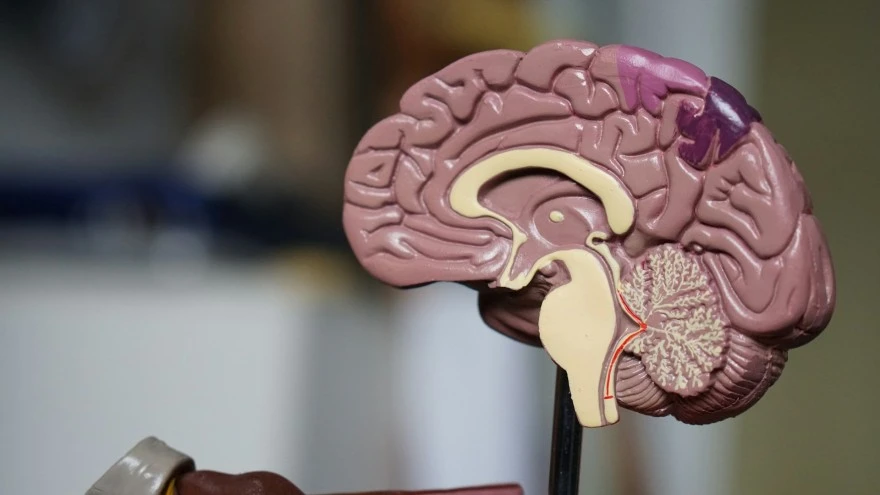PR3 by EIAc-ANCA Serum Test
PR3 ANCA Test Overview
PR3-c-ANCA (proteinase 3-cytoplasmic antineutrophil cytoplasmic antibody) serum is a blood test that measures the presence of antibodies against a specific protein called proteinase 3 (PR3). PR3 is found in neutrophils, which are a type of white blood cell that plays an important role in the immune system. In the case of PR3-c-ANCA, these antibodies target and bind to PR3, causing damage to the neutrophils and leading to inflammation in the affected tissues. PR3-c-ANCA testing is commonly used in the diagnosis of certain autoimmune diseases, such as granulomatosis with polyangiitis (GPA), formerly known as Wegener's granulomatosis. In addition to GPA, PR3-c-ANCA testing may also be used to diagnose other forms of vasculitis (inflammation of blood vessels) and autoimmune disorders that involve the immune system attacking the body's own tissues.
The PR3 ANCA test, also known as the PR3 blood test or PR3 lab test, is a diagnostic tool used to detect the presence of autoantibodies against the proteinase 3 (PR3) enzyme in the blood. These autoantibodies are associated with various autoimmune disorders, particularly those involving systemic vasculitis, such as Granulomatosis with Polyangiitis (GPA), Microscopic Polyangitis (MPA), and Eosinophilic Granulomatosis with Polyangiitis (EGPA).
Written By: Supriya Kulkarni, Lead-Content & Training
Reviewed By: Dr. Alap Christry M.D. AVP-Lab Operations & Scientific Business Head-Clinical Chemistry
Reasons for Undergoing the PR3 ANCA Test
Your doctor may recommend a PR3 ANCA test for several reasons, including:
- Symptoms of Small Vessel Vasculitis: If you show signs such as conjunctivitis, vision problems, persistent upper respiratory symptoms, abnormal urine protein, rashes, granulomas, hearing loss, cough, difficulty breathing, muscle aches, fatigue, fever, night sweats, and weight loss.
- Suspected or Confirmed Diagnosis: When a diagnosis of conditions like Granulomatosis with Polyangiitis (GPA), Microscopic Polyangiitis (MPA), or Eosinophilic Granulomatosis with Polyangiitis (EGPA) is suspected or already confirmed.
- Monitoring Disease Activity: In patients with known small vessel vasculitis, the test helps track disease progression and assess how well treatments are working.
- Differentiating Amyloidosis Types: It can help distinguish between primary and secondary amyloidosis and pinpoint the source of amyloid deposits, which may be related to vasculitis or other conditions.
This test aids in diagnosis, disease management, and treatment decisions.
List of Parameters Considered During the PR3 ANCA Test
The PR3 ANCA test measures specific parameters to help diagnose and monitor small vessel vasculitides:
- Presence of ANCA: The test detects whether ANCA antibodies are present in the blood, specifically targeting the PR3 enzyme.
- Type of ANCA: The pattern of fluorescence can be identified as cytoplasmic (c-ANCA), which is typically associated with PR3-ANCA.
- Levels of PR3-ANCA: The test reports the levels of PR3-ANCA as negative, equivocal, or positive.
PR3 ANCA Test Preparation
Preparing for the PR3 ANCA test is relatively simple:
- No fasting is required before the test.
- A blood sample is collected through venipuncture, typically from a vein in the arm.
- No other special preparations are necessary for this test.
PR3 ANCA Test Results & Interpretation
The results of the PR3 ANCA test are interpreted as follows:
- Reference Range:
- Positive: 20 RU/mL or above
- Negative: Below 20 RU/mL
- Interpretation:
- A positive result indicates the presence of PR3-ANCA, which is a strong indicator of conditions like GPA.
- A negative result suggests the absence of these autoantibodies.
- Reference ranges may vary slightly between laboratories and methods used.
Home Collection for PR3 ANCA Test Near You
Metropolis Healthcare offers a convenient home collection service for the PR3 ANCA test, ensuring a seamless experience for patients. A trained phlebotomist will visit your home to collect the blood sample, maintaining the highest standards of safety, hygiene, and sample handling. This service allows you to undergo the test in the comfort of your own home without compromising on the accuracy of the results. With timely and reliable reports, Metropolis Healthcare's home collection service reflects their commitment to making quality diagnostic solutions easily accessible to all.
PR3 by EIAc-ANCA Serum Test Price
Metropolis Healthcare is a leading diagnostics centre and pathology lab in India equipped with the latest state-of-the-art technologies that provides the PR3 by EIAc-ANCA Serum Test with a clear pricing structure.
The PR3 by EIAc-ANCA Serum Test Price in Mumbai is ₹ 1,700 .
We are committed to deliver accurate and quality results from the best labs in India with complete transparency regarding test cost and turnaround time. No matter where you are, we strive to offer patients high-quality service that is affordable and accessible.
Frequently Asked Questions
The PR3-c-ANCA serum test (also known as Proteinase 3 - Cytoplasmic Anti-Neutrophil Cytoplasmic Antibody test) is a laboratory test used to detect the presence of specific antibodies in the blood that target a protein called proteinase 3 (PR3).
The PR3-c-ANCA Serum Test is typically done for the following reasons:
- To diagnose certain autoimmune diseases: The test is often used to help diagnose autoimmune diseases such as granulomatosis with polyangiitis (GPA) and microscopic polyangiitis (MPA).
- To monitor disease activity: The test can also be used to monitor disease activity in patients with GPA or MPA, as changes in PR3-c-ANCA levels can be an indicator of disease activity.
- To assess response to treatment: The test can be useful in evaluating the effectiveness of treatment in patients with GPA or MPA. A decrease in PR3-c-ANCA levels may indicate that the treatment is working.
- To rule out other conditions: The test may be used to rule out other conditions that can cause similar symptoms, such as infections or other autoimmune diseases.
- To predict disease progression: Elevated levels of PR3-c-ANCA may be associated with a higher risk of disease progression in patients with GPA or MPA. Testing for PR3-c-ANCA levels can help identify patients who may require closer monitoring or more aggressive treatment.
The following symptoms may indicate a need for the PR3-c-ANCA serum test:
- Persistent respiratory symptoms, such as coughing, difficulty breathing, and chest pain
- Nasal or sinus problems, including chronic sinusitis and nosebleeds
- Skin rashes, sores, or lumps
- Joint pain or swelling
- Fatigue, fever, and weight loss
Additionally, if a person has been diagnosed with GPA or another autoimmune disease that affects the blood vessels, their healthcare provider may order the PR3-c-ANCA serum test to monitor disease activity or to check the effectiveness of treatment.
Abnormal results of PR3-ANCA test may indicate the presence of certain autoimmune diseases, particularly granulomatosis with polyangiitis (GPA), formerly known as Wegener's granulomatosis. A positive PR3-c-ANCA serum test result indicates the presence of antibodies against PR3, which can suggest the presence of one of the autoimmune diseases.
During the PR3-ANCA test, a healthcare professional will clean the area on your arm where the blood will be drawn and use a needle to collect a sample of your blood. You may feel a slight pinch or prick when the needle is inserted, but the procedure is generally quick and relatively painless.
No special precautions are required before sample collection. It is always a good idea to inform your healthcare provider about any medications or supplements you are taking, as they may affect the test results. Always follow any instructions given by your doctor or healthcare provider.
Some other laboratory tests that may be ordered along with the PR3-c-ANCA serum test include:
- Complete blood count (CBC): Anemia or other blood cell abnormalities may suggest an underlying autoimmune disorder.
- Erythrocyte sedimentation rate (ESR): This test measures how quickly red blood cells settle to the bottom of a test tube, which can indicate the presence of inflammation in the body.
- C-reactive protein (CRP): Elevated levels of CRP may suggest an underlying autoimmune disease.
- Urinalysis: This test evaluates the urine for the presence of blood, protein, or other abnormalities that may suggest kidney involvement in an autoimmune disease.
- Creatinine level: Elevated creatinine levels may indicate kidney damage.
- ANA (antinuclear antibody) test: This test measures the presence of antibodies against the body's own cell nuclei, which can be present in certain autoimmune diseases.
- Anti-GBM (glomerular basement membrane) antibody test: Elevated levels of anti-GBM antibodies may indicate the presence of a rare autoimmune disease called Goodpasture syndrome.
The PR3-c-ANCA Serum test, also known as:
- Proteinase 3-Antineutrophil Cytoplasmic Antibody test
- PR3-ANCA test
- c-ANCA with PR3 test
The PR3 ANCA test is a blood diagnostic test that identifies autoantibodies targeting the proteinase 3 (PR3) enzyme. These autoantibodies are associated to many autoimmune conditions, especially those related to systemic vasculitis, such as Granulomatosis with Polyangiitis (GPA), Microscopic Polyangiitis (MPA), and Eosinophilic Granulomatosis with Polyangiitis (EGPA).
Yes, home sample collection is available for the PR3 ANCA test. Reputable labs like Metropolis Healthcare offer this convenient service, allowing you to have your blood sample collected from the comfort of your home by a trained phlebotomist.
The PR3 ANCA test is used to diagnose and monitor inflammatory activity in small vessel vasculitides, such as GPA, MPA, and EGPA. It also helps differentiate between primary and secondary amyloidosis and identifies the source of amyloid deposits.
The normal range for a PR3 ANCA test is below 20 RU/mL, indicating the absence of PR3-ANCA. A positive result is considered when the levels are 20 RU/mL or above, suggesting the presence of these autoantibodies.
Individuals presenting with symptoms of small vessel vasculitis or those with suspected or confirmed diagnoses of GPA, MPA, or EGPA are eligible for the PR3 ANCA test.
The PR3 ANCA test offers several benefits, including accurate diagnosis and monitoring of small vessel vasculitides. Early detection and management of conditions like GPA, MPA, and EGPA can help reduce tissue and organ damage. The test also aids in differentiating between primary and secondary amyloidosis, guiding appropriate treatment strategies.
The frequency of testing for the PR3 ANCA test depends on your clinical needs and response to treatment.
You can get the PR3 ANCA test done at any time of the day.
No, fasting is not required for the PR3 ANCA test.
Apart from the standard venipuncture procedure, there are no specific precautions required before undergoing the PR3 ANCA test.
The PR3 ANCA test measures the presence and levels of anti-PR3 antibodies in your blood. It also identifies the pattern of ANCA, such as cytoplasmic (c-ANCA) or perinuclear (p-ANCA), which can provide additional diagnostic information.
The PR3 ANCA test involves collecting a blood sample through venipuncture, typically from a vein in your arm. The sample is then analysed using semi-quantitative indirect fluorescent antibody (IFA) or multiplex bead assays to detect the presence and levels of PR3-ANCA.
The PR3 ANCA test should be done when symptoms of small vessel vasculitis are present or when monitoring disease activity and response to treatment in known vasculitis patients.
The PR3 ANCA test becomes positive when the levels of PR3-ANCA are 20 RU/mL or above, indicating the presence of these autoantibodies. A positive result suggests the likelihood of conditions such as GPA, MPA, or EGPA.
Sample collection for the PR3 ANCA test typically takes just a few minutes, as it involves a standard blood draw procedure.
The turnaround time for PR3 ANCA test reports varies depending on the lab and the specific testing protocol used. Generally, results are available within 24 hours from the time your sample is received by the lab.
Ratings & Reviews (0)
Why Metropolis?
Metropolis has a team of 200 senior pathologists and over 2000 technicians delivering diagnostic solutions in the areas of routine, semi specialty and super specialty domains like Oncology, Neurology, Gynaecology, Nephrology and many more.
We offer a comprehensive range of 4000+ clinical laboratory tests and profiles, which are used for prediction, early detection, diagnostic screening, confirmation and/or monitoring of the disease.





















 WhatsApp
WhatsApp